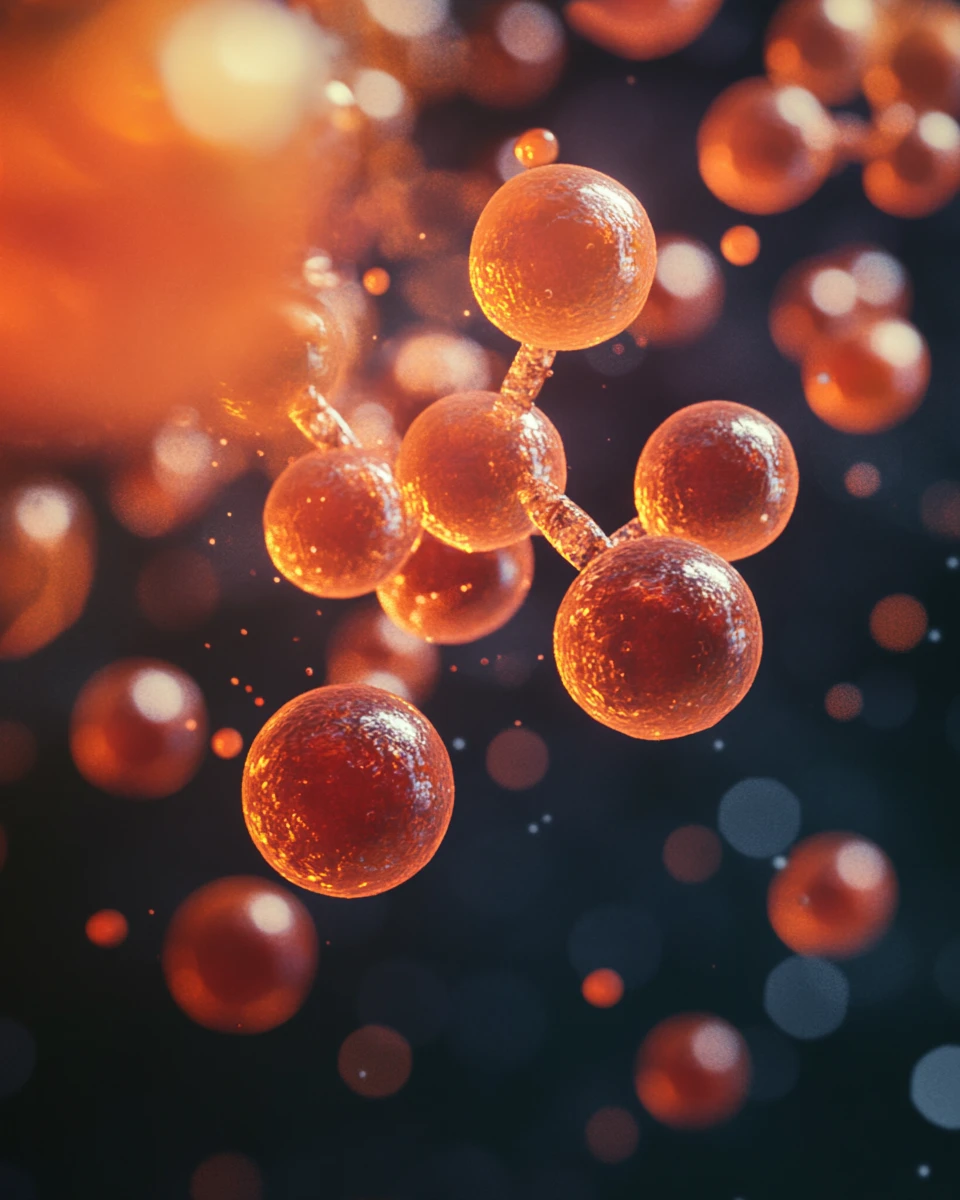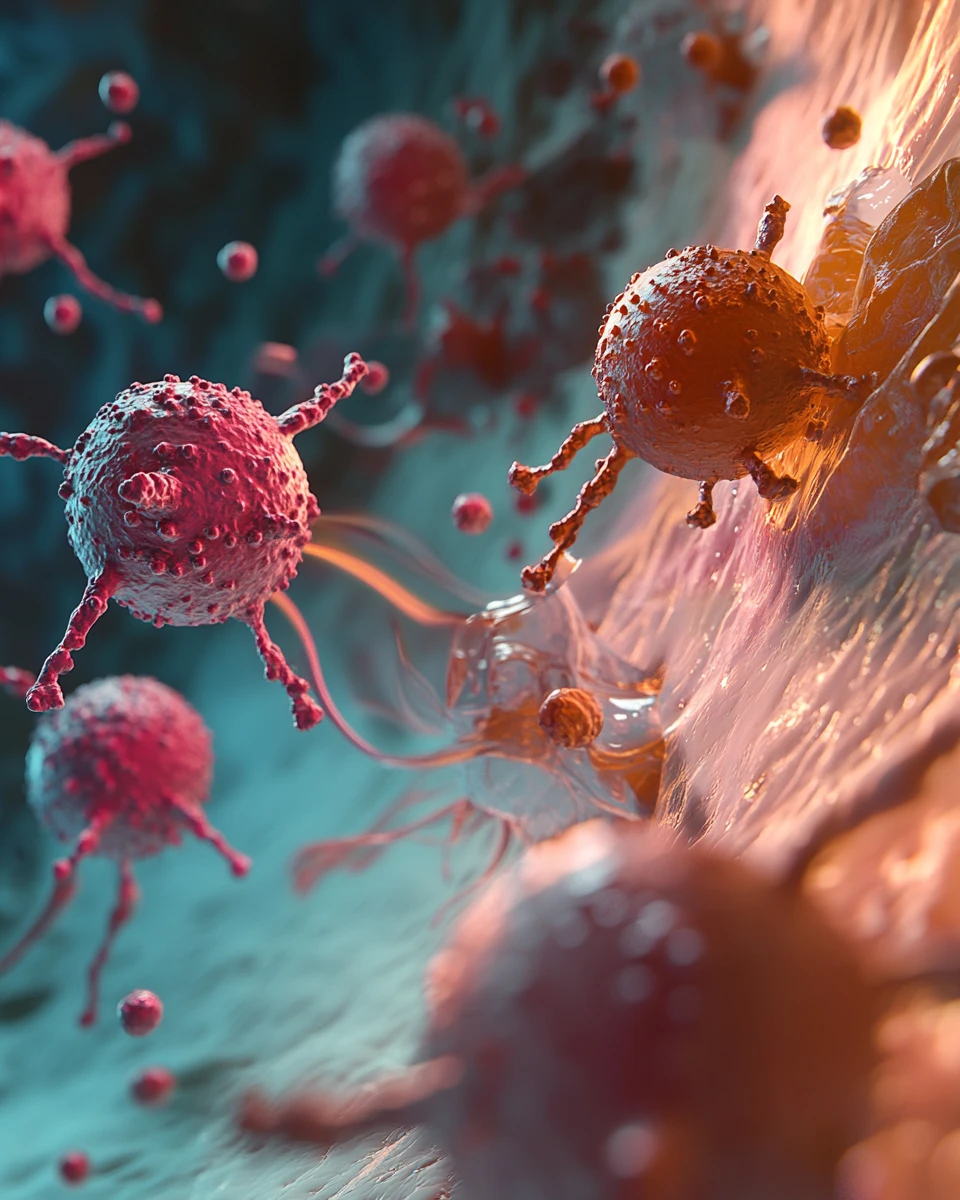

Vitamin A is a fat-soluble vitamin that plays a key role in maintaining healthy skin, vision and immune system.
But beyond these known functions, vitamin A, and more specifically its active forms, the retinoids, have a significant impact on the regulation of genetic expression.

This opens new horizons for the treatment of cancer, where vitamin A can interfere with the processes of cell growth, differentiation and apoptosis.
Recent studies confirm that retinoids affect gene activity, which can slow tumor development and, in some cases, stop tumor progression.
This makes vitamin A one of the promising candidates for the development of new cancer therapies.

The role of vitamin A in the regulation of genetic expression
Retinoids, the active forms of vitamin A, act through retinoid receptors, which are transcription factors that regulate the activity of specific genes.
This allows retinoids to influence crucial processes such as cell proliferation, differentiation, and cell death.
In turn, these processes play a key role in tumor development.

Key Mechanisms of Impact:
- Regulation of apoptosis: Retinoids can activate genes responsible for programmed cell death, which prevents abnormal cells from surviving.
- Inhibition of metastasis: Some studies show that retinoids can limit the spread of tumor cells to other organs.
Studies show that retinoids may be useful in treating different types of cancer such as skin, breast, prostate, and lung cancer. (Chakravarty et al., 2019).

Potential of vitamin A application in cancer therapy
Vitamin A and its derivatives are being actively investigated in the context of their use in the treatment of cancer.
Retinoids may be effective not only in cancer prevention but also in cancer therapy. One successful practice is the use of retinoids in topical therapy to treat precancerous conditions such as actinic keratosis.
Topical Therapy: Tretinoin (a form of vitamin A) is widely used to treat skin cancer and also to prevent recurrence of some forms of cancer after surgery. (Liu et al., 2020).
Systemic therapy: The use of retinoids in combination with other treatments (chemotherapy, radiotherapy) shows good results in the treatment of more aggressive forms of cancer.

Risks and limitations of vitamin A use
Despite its significant potential, the use of vitamin A in oncology has a number of limitations:
- Toxicity: High doses of vitamin A can cause side effects including nausea, headache, and liver damage.
- Tumor insensitivity: Not all cancers show sensitivity to the effects of retinoids, requiring additional personalization of therapy.

Forecasts and prospects for the use of vitamin A
Future research should focus on optimizing dosages and forms of vitamin A to improve its efficacy and reduce side effects.
Given the molecular targets affected by retinoids, there is hope for the development of new, more targeted therapeutic agents.
Prospects:
- Development of combination therapies that include retinoids and other cancer drugs.
- More detailed clinical trials to identify the most appropriate forms of retinoids for different types of cancer.
Table 1: The main forms of vitamin A and their biological effects
| Form of vitamin A | Biological action |
|---|---|
| Retinal | Vision regulation, antioxidant activity |
| Retinoids | Retinoid receptors regulate gene expression, effects on cell differentiation and apoptosis |
| Beta-carotene | Converted to retinal, antioxidant activity, maintenance of immune function |
Table 1 demonstrates the major forms of vitamin A and their role in the body.
Retinoids are the active forms of vitamin A that are active in the regulation of genetic expression through retinoid receptors.
Beta-carotene is a provitamin that is converted to the active form retinal, affecting immunity and antioxidant activity.
Table 2: Use of vitamin A in cancer therapy
| Type of cancer | Use of vitamin A (Retinoids) | Efficiency |
|---|---|---|
| Skin cancer | Topical therapy (tretinoin) | Effective in the treatment of precancerous lesions |
| Breast cancer | Systemic use of retinoids | In combination with chemotherapy increases the effectiveness of treatment |
| Lung cancer | Systemic therapy | Not always effective, requires further research |
Table 2 illustrates the use of vitamin A in different types of cancer.
In particular, topical therapy with retinoids such as tretinoin has been effective in the treatment of precancerous lesions and skin cancer.
In other cases, such as breast or lung cancer, retinoids can be used in combination with conventional therapies.

Conclusion
Vitamin A and its active forms, such as retinoids, have significant potential in the treatment of cancer.
Due to their ability to regulate genetic expression and influence cellular processes, these substances offer new opportunities for cancer treatment, especially when combined with other therapeutic methods.
List of references
- Chakravarty, D., & Mehta, A. (2019). The role of vitamin A in cancer treatment. Journal of Cancer Research and Clinical Oncology, 145(4), 943-951.
- Liu, J., Wang, W., & Chen, Z. (2020). Retinoid therapy in skin cancer: Clinical implications. Journal of Dermatological Treatment, 31(6), 603-609.
- Zile, M.H., & McCaffery, P. (2001). The role of vitamin A in development. Annual Review of Nutrition, 21, 313-339.
- Li, S., & Li, S. (2018). The role of retinoids in cancer prevention and therapy. Current Opinion in Oncology, 30(6), 450-457.




